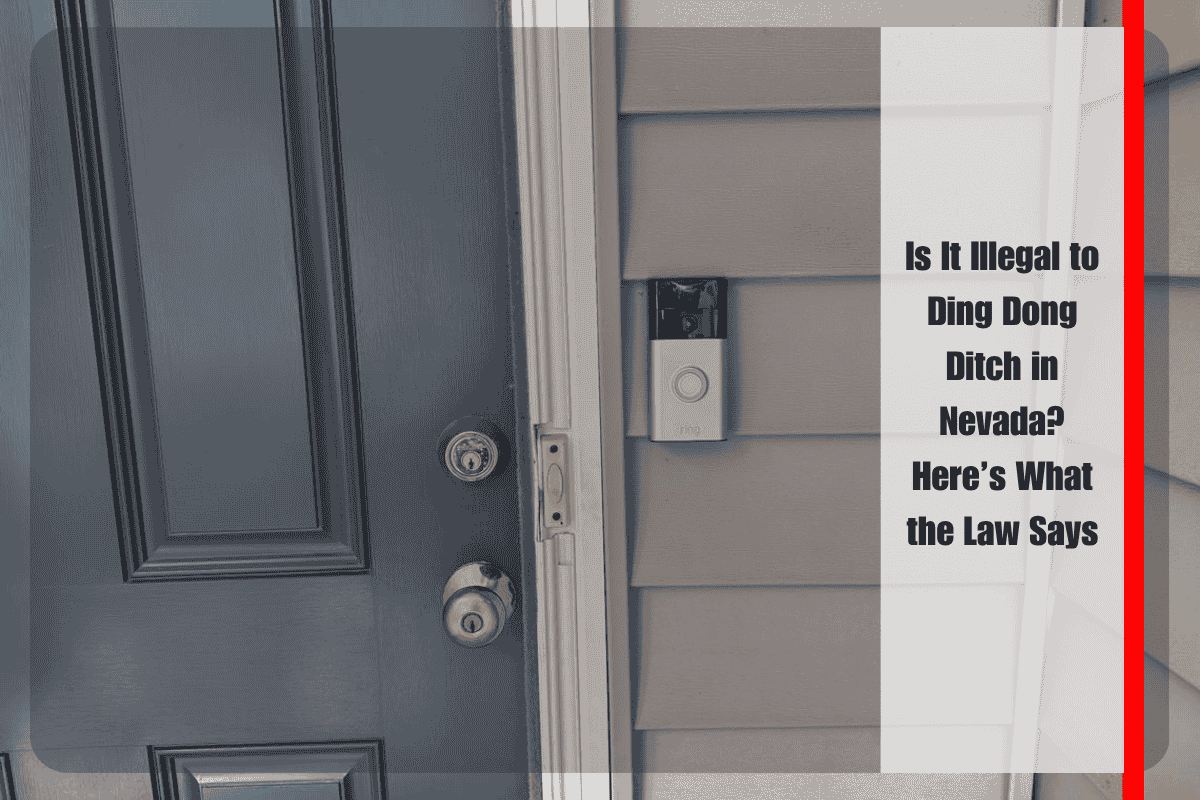Ding dong ditching, the act of ringing someone’s doorbell and running away, is often seen as a harmless childhood prank, but in Nevada, it can have legal consequences depending on the circumstances. While the law does not specifically mention “ding dong ditch” by name, several Nevada statutes could apply if the prank goes beyond innocent fun.
Under Nevada law, trespassing is defined as entering someone else’s property without permission, especially with the intent to vex or annoy the owner or occupant, or remaining on the property after being warned to leave. If a person steps onto private property to ring a doorbell without consent, they could be charged with trespassing, particularly if the property is marked with “No Trespassing” signs or if the owner has previously told them to stay away. Trespassing in Nevada is a misdemeanor offense, punishable by up to six months in jail and a fine of up to $1,000.
Harassment is another legal concern. Nevada law considers harassment to be any behavior that causes someone to feel intimidated, frightened, or distressed. If ding dong ditching is done repeatedly or specifically targets an individual, it may be considered harassment, especially if it causes emotional distress or fear. Harassment is also a misdemeanor, with penalties similar to trespassing.
Disorderly conduct is a broader category that includes actions which disturb the peace or create a dangerous or disturbing situation. If the prank causes a public disturbance or disrupts the peace of a neighborhood, it could be prosecuted as disorderly conduct, which is also a misdemeanor.
The consequences for ding dong ditching can vary. For minors or first-time offenders, law enforcement may issue a warning, especially if the prank is seen as harmless and not repeated. However, if the behavior continues or becomes more serious—such as involving property damage, threats, or repeated harassment—the likelihood of facing criminal charges increases. Aggravating factors like the time of night, the presence of masks or hoodies, or the perception of danger by the homeowner can escalate the situation and the legal response.
Homeowners are advised to remain calm and not to chase or confront pranksters, as this can escalate into violence or unlawful detention. Instead, if a homeowner feels threatened or harassed, they should contact local law enforcement and let professionals handle the situation.
In summary, while ding dong ditching is not always illegal, it can cross into unlawful territory in Nevada if it involves trespassing, harassment, or causes a public disturbance. A single, harmless prank may only result in a warning, but repeated or more serious behavior can lead to criminal charges and significant penalties. It is important to consider both the legal and personal consequences before engaging in such pranks.
The tragic case of a California homeowner who murdered teenagers after a doorbell ditch prank highlights how quickly these situations can escalate, even if the prank itself is not intended to cause harm Such extreme outcomes are rare, but they underscore the importance of understanding the potential risks and legal implications of what may seem like a harmless joke.
Sources
[1] https://www.youtube.com/watch?v=S4ksT6lvfGc
[2] https://www.avvo.com/legal-answers/is-it-allowed-to-ding-dong-ditch–5329846.html
[3] https://www.latimes.com/california/story/2023-04-30/anurag-chandra-murder-teens-ding-dong-ditch












